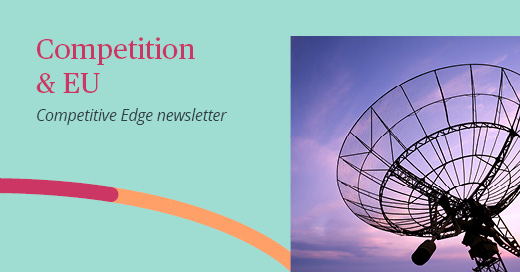Trade mark application: compensation for infringing acts
The European Court of Justice (ECJ) has ruled on the meaning of reasonable compensation for acts committed after publication of an EU trade mark (EUTM) application that would, if committed after publication of the EUTM registration, be actionable as infringements.
Background
The rights conferred by an EUTM prevail against third parties from the date of publication of registration of the EUTM (Article 9(3), EU Trade Mark Regulation (207/2009/EC); now replaced by Article 9b) (EUTM Regulation) (Article 9(3)). Reasonable compensation may, however, be claimed in respect of acts occurring after the date of publication of an EUTM application, which acts would, after publication of the registration of the EUTM, be prohibited.
EU member states must ensure that infringers who knowingly, or with reasonable grounds to know, engage in infringing activity, pay damages appropriate to the actual prejudice suffered by the rights holder as a result of the infringement (Article 13(1), Intellectual Property Enforcement Directive (2004/48/EC)) (Enforcement Directive).
Where the infringer did not knowingly, or with reasonable grounds to know, engage in infringing activity, member states may order the recovery of profits or the payment of damages, which may be pre-established (Article 13(2), Enforcement Directive) (Article 13(2)).
Facts
N, the owner of an EUTM, brought infringement proceedings in Estonia seeking a declaration of unlawful use of her EUTM during a period commencing before publication of the EUTM application. N sought, among other things, compensation for non-material harm (mental pain and the impact on her health).
The Estonian court referred questions relating to the interpretation of the EUTM Regulation and the Enforcement Directive to the ECJ.
Decision
The ECJ held that it is clear from the wording of the EUTM Regulation that an EUTM prevails against third parties from the publication of the registration, and not before. Member states cannot provide under their national law that the legal protection of an EUTM could begin on the date of filing of the application for registration.
It was for the national court to decide, in accordance with its procedural rules, whether it would issue an injunction against further infringement despite the fact that N had not requested one.
Reasonable compensation can only relate to the period from publication of the EUTM application, and should be interpreted as encompassing heads of loss that are recoverable under national law, such as damages for moral prejudice. Here, this included injury to health arising from wrongful use of the trade mark.
Since the EUTM Regulation contained no rules relating to damages for infringement, national law applied to these damages. In this context, Article 13 of the Enforcement Directive differentiated between damages for knowing and unwitting infringement, with full compensation being payable for knowing infringement, and merely the recovery of profits and damages being permitted where infringement had not been knowingly committed. As a result, reasonable compensation under Article 9(3) could not exceed the reduced compensation provided for in Article 13(2). It was therefore appropriate to apply the criterion relating to the recovery of profits and to exclude from that compensation redress for wider harm, such as moral prejudice, that the EUTM owner may have suffered from its use. Recovery of profits did, however, fall within the scope of that compensation, as the objective pursued by Article 9(3) was to prevent third parties from improperly and knowingly benefiting from the intrinsic economic value in the application for registration of the EUTM.
Comment
While the conclusions reached in this decision are not surprising, it provides welcome guidance on how to calculate reasonable compensation, a subject which has not been subject to much judicial comment. Compensation for use of an EUTM that is subject to a pending application should be lower than damages for infringement of a registered EUTM, since the interest arising from an application is conditional on its eventual success.
Case: Nikolajeva v OÜ Multi Project C-280/15.
First published in the August 2016 issue of PLC Magazine and reproduced with the kind permission of the publishers. Subscription enquiries 020 7202 1200.


